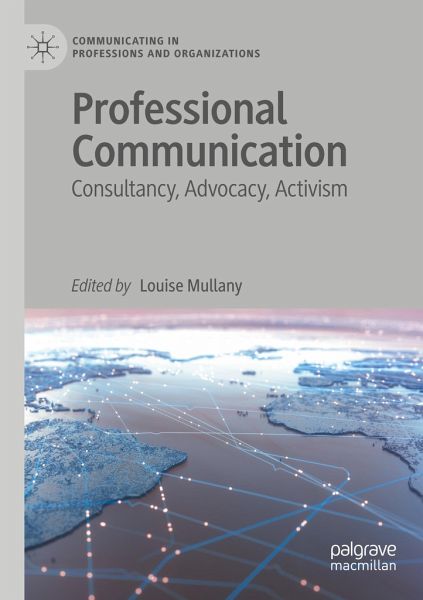
Professional Communication
Consultancy, Advocacy, Activism
Herausgegeben: Mullany, Louise
Versandkostenfrei!
Versandfertig in 6-10 Tagen
113,99 €
inkl. MwSt.

PAYBACK Punkte
57 °P sammeln!
This edited book presents contemporary empirical research investigating the use of language in professional settings, drawing on the contributions of a set of internationally-renowned authors. The book takes a critical approach to understanding professional communication in a range of fields and global contexts. Split into three parts, covering Business and Organisations, Healthcare, and Politics and Institutions, the contributors explore how and why academics engage in workplace research which takes the form of 'consultancy', 'advocacy' and 'activism'. In light of an ever-changing, ever-deman...
This edited book presents contemporary empirical research investigating the use of language in professional settings, drawing on the contributions of a set of internationally-renowned authors. The book takes a critical approach to understanding professional communication in a range of fields and global contexts. Split into three parts, covering Business and Organisations, Healthcare, and Politics and Institutions, the contributors explore how and why academics engage in workplace research which takes the form of 'consultancy', 'advocacy' and 'activism'. In light of an ever-changing, ever-demanding global landscape, this volume offers new theoretical and methodological ways of conducting professional communication research with real-world impact. It will be of interest to linguistics and communication researchers and practitioners, particularly those working in sociolinguistics, discourse analysis, business communication, health communication, political communication, languageand the law and organisational studies.












